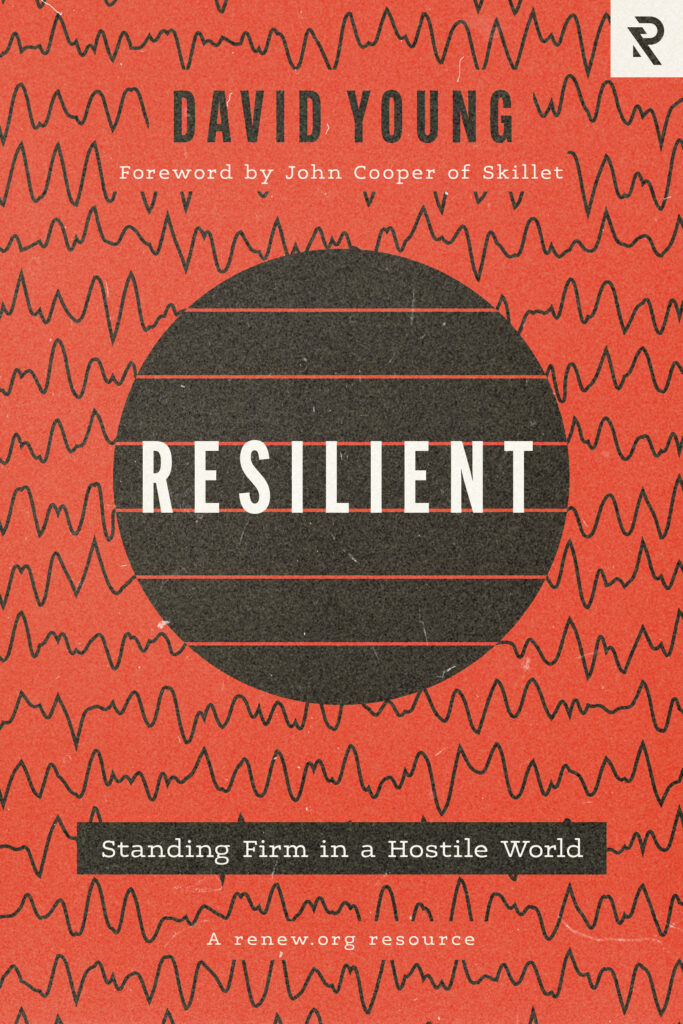
Gain Strength from Your Resolve
When I was in junior high school, the coaches in my physical education class decided to teach us several dances. I had been taught by my church that dancing is sinful because it creates lustful situations. I doubt the church of my youth still teaches this (I really don’t know), and I’ve since changed my own views on dancing. But back then, I had embraced the belief that Christians don’t dance.
Up to that point, the question of whether I would dance had always been theoretical. Now suddenly and without warning, I was told I was going to dance. At first, I was afraid I would get in trouble with my parents if I danced.
I was embarrassed and afraid. And I was all alone. I pulled aside one of the coaches and asked if I could be excused from the exercise. The coach looked at me like I had just said I was from another planet and asked, “Why?”
I stumbled around for a moment and found I couldn’t bring myself to say why. So she asked again. Finally, I explained that as a Christian, I believed it to be a sin to dance.
“I’ve since changed my own views on dancing. But back then, I had embraced the belief that Christians don’t dance.”
“We’re all Christians in here,” she replied. “Are you saying we are all wrong?” I replied that I wasn’t trying to judge anyone else, but I simply couldn’t do it. As she stared at me, I saw anger growing in her eyes. Then, to my utter humiliation, she announced to the seventy-five or so other kids that I was refusing to dance because I thought they were all sinners.
My peers stared at me with shock and, in the case of a few, disgust. Another coach called me over to the side. This coach was a member of my very own congregation. He put his hands on my shoulders and leaned over to put his face close to mine. “Can’t you just give in this one time?” he asked. “Don’t you see how they’re all looking at you?” He wasn’t angry. He was pleading. He was genuinely trying to help me and save me the embarrassment of the occasion.
But my motives changed when he asked me to compromise. Though my initial resistance stemmed from a fear of getting in trouble with my parents, I found my myself getting angry when feeling pressured to compromise. My heart steeled with conviction. “No,” I said. “I’m not going to do it. And I’m not going to back down.”
“Can’t you just give in this one time? Don’t you see how they’re all looking at you?”
The coaches huddled up for a moment and then announced to the class that they would proceed with the dances, putting me in the corner of the gym and making me write endless pages of nonsense for as many days as the class danced. I started toward the corner when, to my surprise, a dozen other students raised their hands and asked if they could join me.
To be clear, what happened to me hardly qualifies as religious persecution, but I learned two important lessons that day. First, I learned that when one person takes a stand, it gives others courage to stand. For the rest of my schooling, people knew I was a Christian, and many would even come to me in times of need for a word of encouragement or biblical wisdom—even those who laughed at me that day.
The second lesson I learned was that once you take a stand for what you believe is right, you get strength, resolve, and—oddly—peace. After it dawned on me that the coaches were not going to back down, I, too, felt a strange sense of determination. I realized that it was time for me to get serious about my youthful faith. That decision gave me strength. At that moment, I knew who I was, I knew what I believed, and I knew where I stood. I found myself glad that I follow Jesus with nothing to hide and nothing to lose.
“Once you take a stand for what you believe is right, you get strength, resolve, and—oddly—peace.”
And since then, every time I have exercised resolve, it has made it easier to do so the next time. Throughout my years of ministry, I have been challenged a thousand times. I have faced off demons. I have been the subject of countless pages of rants online. I have been betrayed by some who were close to me. I have received death threats for stands I’ve taken and even been forced to go into hiding for my ministry. Every time opposition comes, I feel a sense of shock and often a sense of exhaustion quickly followed by a sense of peace. Every form of opposition simply increases my resolve in Christ.
Excerpted from David Young, Resilient: Standing Firm in a Hostile World (RENEW.org, 2023).








